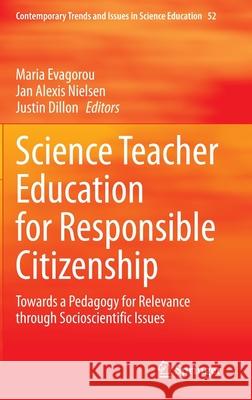Science Teacher Education for Responsible Citizenship: Towards a Pedagogy for Relevance Through Socioscientific Issues » książka
topmenu
Science Teacher Education for Responsible Citizenship: Towards a Pedagogy for Relevance Through Socioscientific Issues
ISBN-13: 9783030402280 / Angielski / Twarda / 2020 / 199 str.
Science Teacher Education for Responsible Citizenship: Towards a Pedagogy for Relevance Through Socioscientific Issues
ISBN-13: 9783030402280 / Angielski / Twarda / 2020 / 199 str.
cena 562,23
(netto: 535,46 VAT: 5%)
Najniższa cena z 30 dni: 539,74
(netto: 535,46 VAT: 5%)
Najniższa cena z 30 dni: 539,74
Termin realizacji zamówienia:
ok. 22 dni roboczych.
ok. 22 dni roboczych.
Darmowa dostawa!
Kategorie:
Kategorie BISAC:
Wydawca:
Springer
Seria wydawnicza:
Język:
Angielski
ISBN-13:
9783030402280
Rok wydania:
2020
Wydanie:
2020
Numer serii:
000388777
Ilość stron:
199
Waga:
0.48 kg
Wymiary:
23.39 x 15.6 x 1.42
Oprawa:
Twarda
Wolumenów:
01
Dodatkowe informacje:
Wydanie ilustrowane











